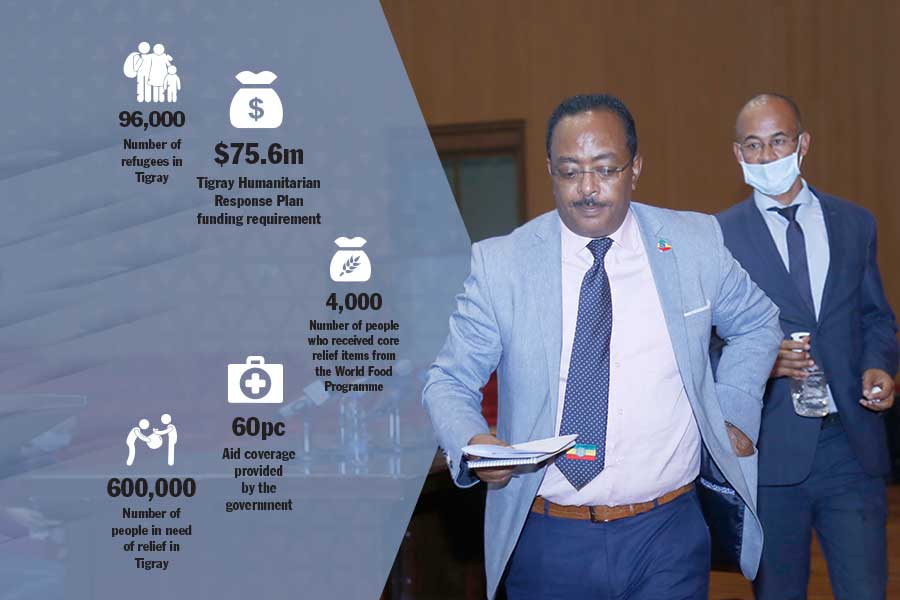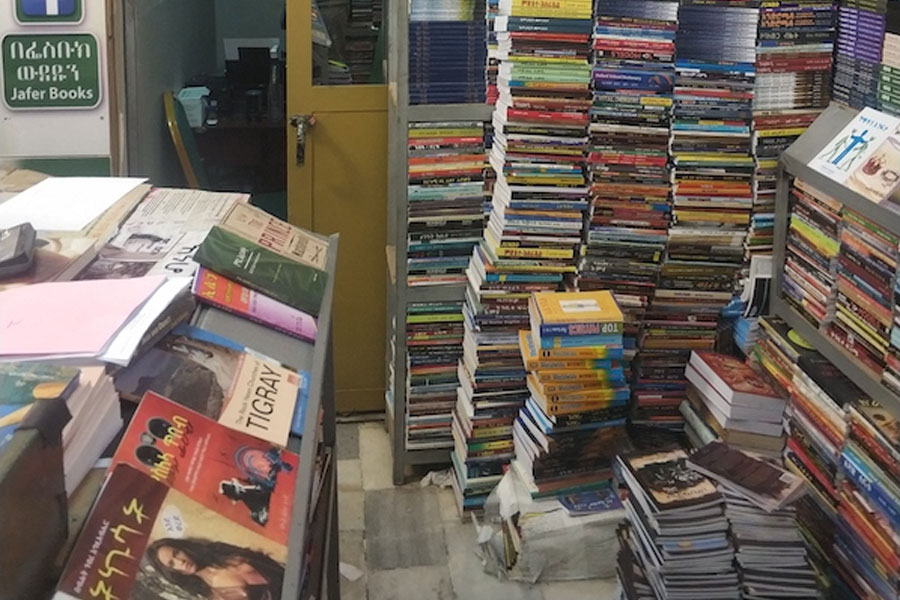
Covid-19 | May 01,2020
Bonfires are set, and children go house to house singing Hoya Hoyeduring the holiday of Buhe, which is observed annually in August by followers of the Ethiopian Orthodox Tewahedo Church. The song is one of praise for the occupant of the house they have knocked at, and in return, they expect traditional, homemade bread. Yohannes Kifle, a devout member of the faith, deviates from this tradition.
Instead of bread – or cash handouts, as has become more prevalent these days – he wants to do something less symbolic but far more important. The children that come to his house are encouraged to bring their certificates for the previous academic year. A list is drawn up, and from that, he chooses children for whom he can personally cover a year’s worth of educational materials.
He moved on to parents this past year, after the lockdown measures put in place to contain the spread of the Novel Coronavirus (COVID-19) pandemic. He provided financial support for families in his neighbourhood.
When he then passed on December 25, 2020, at 81 years old, of complications from breathing problems (he was on oxygen support for some time) following treatment at Hallelujah Hospital, he was missed.
“Young people, kids, relatives, you name it, he was kind to everyone,” says his wife of over half a century, Yemesirach Feleke.
Part of Yohannes’ humanitarianism may come from the circumstances of his birth. He was exposed to adversity from then. This is despite having aristocratic roots. But that counted for little once Ethiopia was invaded by Fascist Italy, and his family had to run to Kenya, a British colony at the time.
It was there that he was born inside a refugee camp. By the time he was able to return to Ethiopia, he was four. It was an eventful childhood, most of it spent in the United Kingdom before he returned to Ethiopia in his teens to attend high school and college. He did his master's in the United States in journalism and taught at the University of California, Los Angeles (UCLA).
Like most families, especially of a certain economic and political pedigree, fate is determined mainly by the regimes that come and go. It was not different for Yohannes. Initially, he had the distinction of being among one of the earliest employees of Ethiopian Television, now EBC, when television broadcasts began in 1964. He stayed there for seven years.
But the revolution was fermenting, and it would reach its climax in the mid-1970s. Soon after, he was jailed. It was never clear why, and all he was told was that he was suspected of being a reactionary. His wife, Yemesirach, believes that the main reason was his aristocratic background. He spent four years in Alem Bekagn, later known as Kerchale.
There, too, his humanitarian impulse kicked in. He initiated a process to establish a high school inside the prison, where he started to teach, and the students-cum-prisoners would go on to take national exams.
Besides teaching, he used prison time to translate Russian literary icon Maxim Gorky’s “The Mother.” However, he did not finish it, and it was published last year after a biography of himself was added as a foreword. A full autobiography — which he imagines would be a telling of his life experiences — is to be published posthumously.
Post prison, it seemed that the regime believed he had paid his debt or that he was no longer a credible threat. He worked for the Tourism Commission as a consultant before rising to the post of CEO. It was an experience that he took to the Organisation of African Unity, now the African Union, when he was hired as chief of protocol in the late 1990s. Both positions allowed him the opportunity to network with the political powerhouses of Ethiopia and then Africa.
Upon retirement, he founded Shebelle Ethiopia Conference Services, an event organising company focusing on meetings, which would at times employ up to 100 people in temporary and permanent positions. There, too, sometimes his business interests would be compromised by his humanitarian instincts. When he felt some of his staff could find better opportunities with international organisations the company usually worked for, he would recommend them. This is despite training them for perhaps a year.
“We used to kid around asking when he would get me a job at the UN for all of my contributions in training staff of ours that go there,” says Berhane Abera, deputy general manager at Shebelle for six years and also his daughter-in-law.
PUBLISHED ON
Jan 16,2021 [ VOL
21 , NO
1081]

Fortune News | Dec 12,2020

Radar | Apr 13,2019

Radar | Mar 11,2024

Fineline | Jan 04,2020

View From Arada | Sep 10,2023

Dec 22 , 2024 . By TIZITA SHEWAFERAW
Charged with transforming colossal state-owned enterprises into modern and competitiv...

Aug 18 , 2024 . By AKSAH ITALO
Although predictable Yonas Zerihun's job in the ride-hailing service is not immune to...

Jul 28 , 2024 . By TIZITA SHEWAFERAW
Unhabitual, perhaps too many, Samuel Gebreyohannes, 38, used to occasionally enjoy a couple of beers at breakfast. However, he recently swit...

Jul 13 , 2024 . By AKSAH ITALO
Investors who rely on tractors, trucks, and field vehicles for commuting, transporting commodities, and f...

Jul 5 , 2025
Six years ago, Ethiopia was the darling of international liberal commentators. A year...

Jun 28 , 2025
Meseret Damtie, the assertive auditor general, has never been shy about naming names...

Jun 21 , 2025
A well-worn adage says, “Budget is not destiny, but it is direction.” Examining t...

Jun 14 , 2025
Yet again, the Horn of Africa is bracing for trouble. A region already frayed by wars...